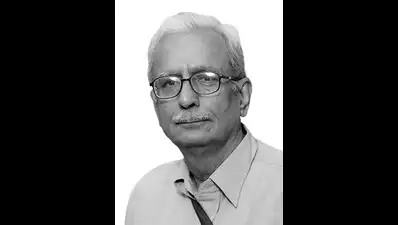Raipur National Literary Festival: A Celebration of Voices and Stories
As the sun dipped below the horizon, casting a warm golden glow over the city of Raipur, excitement filled the air. The annual Raipur national literary festival was about to commence, drawing together writers, poets, scholars, and literature enthusiasts from across the country. With its vibrant atmosphere and a rich tapestry of literary discussions, the festival aimed to celebrate not only the written word but also the diverse narratives that shape Indian culture. For four days, attendees would immerse themselves in a whirlwind of storytelling, workshops, and panel discussions, all designed to inspire and provoke thought.
The festival, now in its fifth year, has grown exponentially since its inception. Originally a small gathering of local writers, it has transformed into a national platform boasting a lineup of esteemed authors and intellectuals. This year’s theme, “Voices of Change,” resonated deeply, inviting participants to explore how literature can reflect societal shifts and inspire action. Organizers crafted a carefully curated program, featuring sessions on everything from contemporary fiction to traditional storytelling, ensuring there was something for everyone.
As the first day unfolded, the ambiance was electric. Stalls lined the pathways, each adorned with colorful banners featuring book covers and author photographs. Attendees leisurely strolled, sifting through piles of books, their conversations punctuated by laughter and animated discussions. The air was thick with the scent of fresh coffee and the tantalizing aroma of local cuisine wafting from food stalls. Families, students, and literary aficionados mingled, united by a shared passion for storytelling.
Among the notable figures gracing the festival was acclaimed author Arundhati Roy. Her presence alone drew crowds, and as she took to the stage for her keynote address, silence engulfed the audience. With her characteristic eloquence, Roy spoke passionately about the transformative power of literature. She emphasized how stories can change perceptions and challenge societal norms, urging aspiring writers not to shy away from uncomfortable truths. Her words ignited a spark, encouraging many in the audience to reflect on their own narratives and the impact they could have.
In another corner of the festival, a panel discussion featuring emerging voices in Indian literature captured significant attention. Moderated by award-winning poet Ranjit Hoskote, the conversation delved into the challenges faced by new authors in a rapidly changing publishing landscape. Panelists shared personal anecdotes about their journeys, highlighting the hurdles of getting published and finding their unique voices amidst the noise. The session resonated with young writers, many of whom took notes furiously, eager to glean insights from those who had navigated similar paths.

As the evening progressed, literary performances took center stage. Poets recited verses that echoed deep emotions, while storytellers captivated audiences with tales of folklore and fables. The Raipur national literary festival became a melting pot of culture, where traditions intermingled with modern narratives. Children and adults alike gathered around a storyteller, enthralled by the rhythmic cadence of words weaving together ancient myths and contemporary issues.
The festival also prioritized inclusivity, ensuring that marginalized voices were heard. Sessions focused on regional literature and the stories of underrepresented communities were woven into the fabric of the event. In one particularly moving session, writers from indigenous backgrounds shared their experiences and the importance of preserving their languages and traditions through storytelling. Their powerful narratives resonated deeply, highlighting the festival’s commitment to showcasing a multifaceted view of Indian literature.
On the final day, the atmosphere buzzed with a mix of excitement and nostalgia. Attendees reflected on the inspiring conversations, workshops, and connections made over the past few days. Many exchanged contact information, eager to keep in touch and continue the dialogue sparked by the festival. The closing ceremony featured an open mic session, where participants were invited to share their own stories, creating a sense of community and belonging.
As the Raipur national literary festival came to a close, it became evident that it was more than just an event. It was a celebration of creativity, resilience, and the power of words to bridge divides. The festival left an indelible mark on all who attended, a reminder of the importance of storytelling in our lives. With plans already underway for next year’s festival, the organizers vowed to continue fostering a love for literature and nurturing the voices that shape our world.
In a time when divisiveness and discord often dominate headlines, the Raipur national literary festival stands as a beacon of hope, illuminating the path for emerging writers and readers alike. It is a testament to the belief that stories can inspire change, foster understanding, and ultimately bring us closer together in a beautifully complex tapestry of human experience. As the final applause faded and the lights dimmed, one thing was clear: the words exchanged in Raipur would ripple far beyond the festival grounds, resonating in the hearts and minds of many for years to come.












Leave a comment